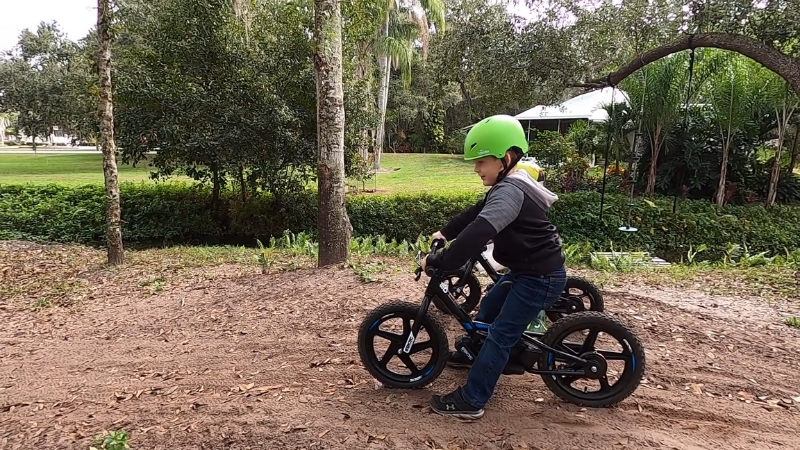So, you’re thinking about hopping on an electric bike (e-bike) in Florida, or maybe you already own one and want to make sure you’re riding legally. Either way, it’s smart to get familiar with the current e-bike laws in the Sunshine State before you hit the road (or trail).
Florida’s e-bike regulations have changed quite a bit over the last few years, giving us more clarity and freedom, but they also come with some important rules to keep in mind. Let’s break it all down so you know exactly what to expect when cruising on your e-bike in Florida.
Table of Contents
ToggleWhat Counts as an E-Bike in Florida?
Florida groups e-bikes into three categories, and each category comes with its own rules. The distinction is based on how the motor assists the rider and the bike’s speed. Here’s a quick overview:
- Class 1 E-Bike: The motor only kicks in when you’re pedaling (pedal-assist), and it stops helping once you hit 20 mph.
- Class 2 E-Bike: This type can go on its own without you having to pedal, thanks to a throttle. But, like Class 1, it tops out at 20 mph.
- Class 3 E-Bike: These are similar to Class 1 e-bikes in that they require pedaling, but the motor keeps assisting until you hit 28 mph.
Each class matters because the rules change slightly depending on what type you’re riding.
Do You Need a License or Registration?
Good news for e-bike enthusiasts—Florida makes it super easy to get rolling. You don’t need a license, registration, or even insurance to operate an e-bike.
Yep, you read that right! E-bikes are classified similarly to traditional bicycles under Florida law, like road or gravel bikes, which means fewer hoops to jump through compared to mopeds or motorcycles.
The lack of licensing and registration makes e-bikes an accessible transportation option for just about anyone. Plus, there’s no need to deal with DMV paperwork, which is always a win in my book.
Where Can You Ride Your E-Bike?

You’re probably wondering where you can legally ride your e-bike. Luckily, Florida grants e-bikes most of the same rights as regular bicycles, so you have quite a bit of freedom:
- Roadways and Shoulders: Just like regular bikes, e-bikes can be ridden in the right lane or along the shoulder.
- Bike Lanes: E-bikes of all classes are allowed in designated bike lanes.
- Multiuse Paths and Bike Paths: These shared spaces are open to e-bikes, but local cities or counties can set specific rules. Always be sure to check local regulations, especially in parks or other designated areas.
One key thing to remember is that local governments have the power to restrict or regulate e-bike access in certain areas.
So, while you may have free rein on most roads and paths, always check posted signs, especially in places like nature reserves or parks.
Speed Limits and Power Restrictions

Florida sets clear guidelines when it comes to e-bike speed limits and motor power. The goal? To keep everyone safe on the road, trails, and paths. Here’s what you need to know:
- The max motor power on any e-bike can’t exceed 750 watts.
- For Class 1 and Class 2 e-bikes, the speed is capped at 20 mph.
- Class 3 e-bikes can go up to 28 mph, but they come with a few additional restrictions (more on that in a sec).
If you’re thinking of souping up your e-bike with a more powerful motor or going beyond those speed limits, hold up. E-bikes that exceed these thresholds might fall under different vehicle classifications, requiring registration and adherence to stricter motor vehicle laws.
Helmets & Who Needs to Wear One
Helmet laws are a hot topic for any kind of bike rider, and e-bikes are no exception. Florida’s helmet rules are pretty straightforward:
- Riders under 16: If you’re under 16, you’ve got to wear a helmet, regardless of which class e-bike you’re riding.
- Riders over 16: Once you’re over 16, helmets are strongly recommended but not legally required. That said, it’s always a smart move to wear one, especially if you’re cruising at higher speeds on a Class 3 bike.
For Class 3 e-bikes, there’s a stricter rule—helmets are mandatory for all riders and passengers, no matter your age.
Who Can Ride?
The state keeps it pretty relaxed when it comes to age limits for riding an e-bike:
- There’s no minimum age to operate a Class 1 or Class 2 e-bike, which makes them a fun option for younger riders.
- For Class 3 e-bikes, you need to be at least 16 years old to ride.
If you’re a parent or guardian of a young rider, it’s always a good idea to make sure they’re aware of the safety guidelines, especially when it comes to wearing helmets and understanding their e-bike’s speed capabilities.
Can You Ride Off-Road or on Trails?
If you love hitting the trails with your e-bike, the rules can be a bit more specific, depending on where you plan to ride:
- State Parks and Nature Preserves: E-bikes are generally allowed on trails where regular bikes are permitted, but some parks may have restrictions, especially in environmentally sensitive areas.
- Off-Road and Mountain Trails: Some off-road trails may restrict access to e-bikes, particularly Class 2 and Class 3 models, due to concerns about speed and trail damage.
Always check the local rules before heading off-road to avoid any surprises. Many state parks will have signs posted, and a quick online search can give you trail-specific guidelines before your adventure begins.
Riding at Night

If you’re planning to ride after dark, Florida has clear rules about staying visible:
- Your e-bike needs a white light in the front visible from at least 500 feet.
- The rear must have a red reflector or red light that’s visible from 600 feet away.
- While reflective clothing isn’t required, it’s a good idea to wear it if you want to be as visible as possible to other road users.
It’s all about safety here, so make sure your lights are in good working condition before you head out for any nighttime rides.
Can You Get a DUI on an E-Bike?
Short answer: Yes. Florida’s DUI laws apply to e-bikes just as they do to cars. If you’re caught riding an e-bike with a blood alcohol concentration (BAC) of 0.08% or higher, you could be charged with a DUI.
The penalties are the same as for other vehicles, including fines, possible jail time, and the suspension of your driver’s license. So, if you’re enjoying a day out and about, it’s best to leave your e-bike at home if you’ve had a few drinks.
Insurance and Liability

While you don’t have to insure your e-bike, it’s definitely worth considering. Some auto insurance policies may cover e-bikes, and there are also specialized e-bike insurance plans available.
Getting insurance can protect you in case of theft, accidents, or damage, especially as e-bikes continue to grow in popularity. Liability is another big consideration.
If you’re involved in an accident with a pedestrian, car, or another cyclist, you could be held liable for any damages. Having insurance that covers liability can be a lifesaver in those situations, giving you peace of mind while you’re out riding.
Wrapping It Up
Florida’s e-bike laws strike a great balance between safety and freedom. With no need for a license or registration and the ability to ride on most public roads and bike lanes, getting around on an e-bike is a breeze.
However, it’s still important to know the details—like speed limits, where helmets are required, and how local rules may impact your ride in parks or on trails.
If you follow the guidelines, stay mindful of local regulations, and always keep safety top of mind, your e-bike experience in Florida is sure to be a smooth and enjoyable ride.
Related Posts:
- Everything You Should Know About Pennsylvania E-Bike Laws
- What Are the Spokes on a Bike For? Everything You…
- Are Shimano Clipless Pedals Good for Gravel?…
- 9 Things Every Cyclist Should Know About FTP…
- Did You Know You Need a License to Ride an E-Bike in…
- Best 13 Florida Bike Trails Near Beaches in 2025 -…








